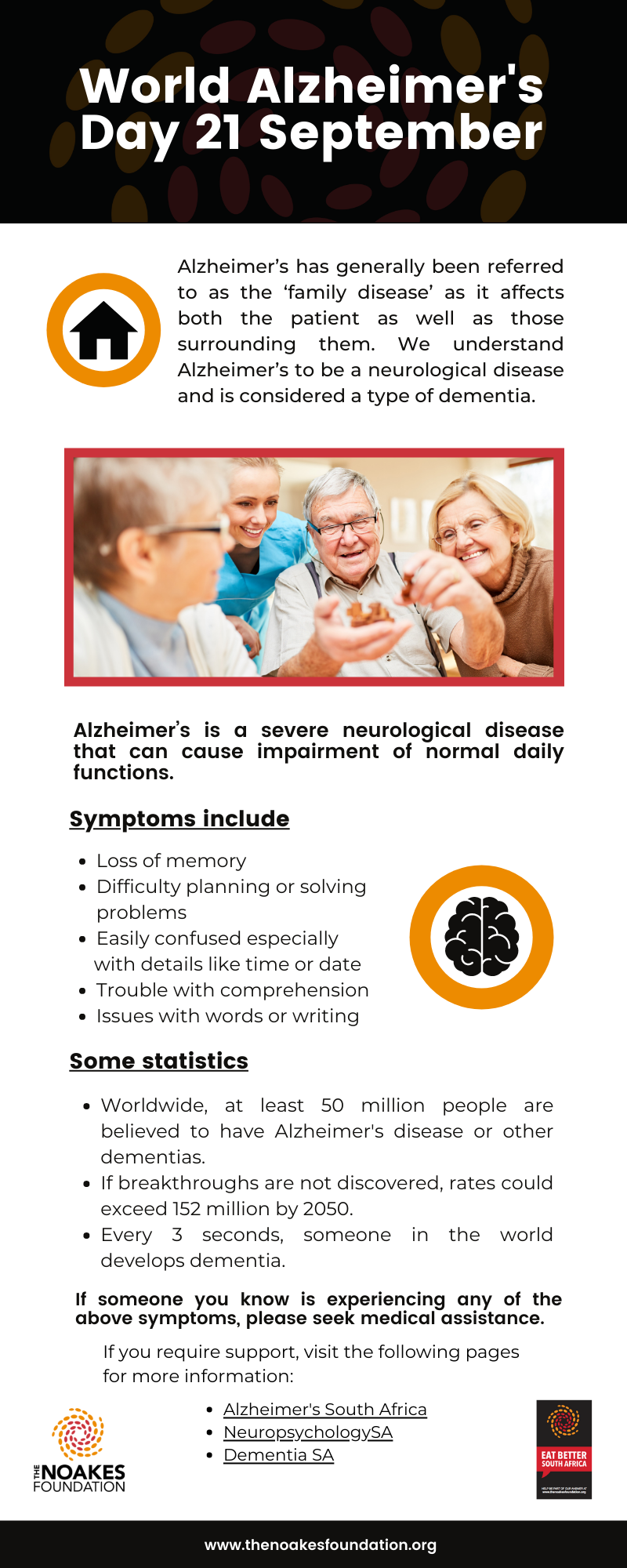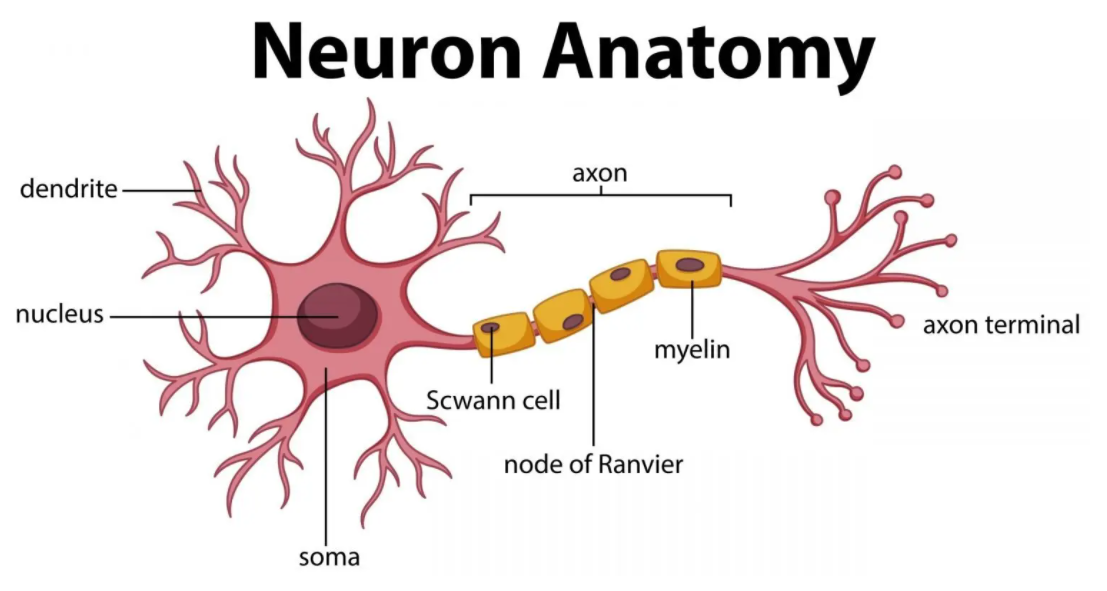
Source of infographic information: https://www.brightfocus.org/alzheimers/article/alzheimers-disease-facts-figures
Alzheimer’s is a severe neurological disease that can cause impairment of normal daily functions. The disease has been showcased in numerous films over the years, think of The Notebook, Aurora Borealis or the newly released The Father with Anthony Hopkins. Hollywood movies tend to dramatise situations and evoke emotion through storytelling. Filmmakers approach the topic of Alzheimer’s with grace, dignity and realism by exploring the disease through the eyes of loved ones or those suffering from the disease. As the audience, we get a partial glimpse into the world of an individual diagnosed with Alzheimer’s – sometimes there’s even a silver lining at the end of the film. However, in reality the slow cognitive decline caused by the disease is a harrowing experience for the individual affected and their family members, often leaving both parties emotionally drained and exhausted. Unfortunately, Alzheimer’s disease is a long process and has mental, as well as financial, implications for all individuals involved.
Today marks World Alzheimer’s Day, which is internationally observed annually on the 21st of September by Alzheimer’s organisations throughout the world. The Noakes Foundation would like to bring awareness to the disease to display how important it is to talk freely about it and to destigmatize the disease. In this article we will discuss Alzheimer’s, symptoms, the current research and how you can seek help should you know of someone that may be at risk of Alzheimer’s disease.
Alzheimer’s has generally been referred to as the ‘family disease’ as it affects both the patient as well as those surrounding them. We understand Alzheimer’s to be a neurological disease and is considered a type of dementia. Alzheimer’s also accounts for 60-80% of all dementia cases. In most cases, Alzheimer’s begins by affecting memory, thinking abilities and general behavior, however, it can progress to the point where it can interfere with even the simplest of tasks – such as brushing one’s teeth – and the sufferer, therefore, cannot cope with daily life. Unfortunately, little is known about what actually causes Alzheimer’s. It was initially thought that it may be part of the natural aging process, this is not the case at all, however increased aging is the greatest risk factor associated with the disease. Alzheimer’s has been shown to affect those that are 65 years or older, but it is not limited to the older population and has presented in people as young as 30 years old. Although we don’t fully understand WHAT causes the disease we do know HOW it causes the associated symptoms. The disease process of Alzheimer’s causes brain cell death and ultimately the degradation of healthy brain tissue. To understand the process we turn our attention to neurons, the information messengers of our brain. Neurons essentially talk to one another by means of chemical and electrical signals, helping us to process sensory stimuli and perform normal movement. Neurons are the brain cells most affected by Alzheimer’s disease. The most notable hallmarks of Alzheimer’s is tau tangles and β-amyloid peptide accumulation. To explain the role of tau in Alzheimer’s progression – tau is a specific protein in neurons that is dedicated to maintaining the structure of neurons – allowing for proper conduction of signals along the neuron. In the case of Alzheimer’s the tau protein is negatively altered, mainly through phosphorylation, and the neuron structure becomes compromised, preventing the neuron from functioning properly. β-amyloid peptide accumulation, on the other hand, takes place on the outside of the neuron. β-amyloid peptide comes from a protein known as amyloid precursor protein. Amyloid precursor protein is hydrolyzed by specific enzymes creating smaller β-amyloid peptide molecules. This is usually a naturally occurring process in the brain, however, during Alzheimer’s an imbalance in production and clearing of these peptides are observed. The β-amyloid peptides are sticky molecules and tend to clump together and aggregate in the synapses of neurons, forming plaques. Synapses are small spaces between neurons where chemical signals pass from one neuron to the next. If these spaces are blocked signals cannot be received or transmitted between neurons.
The hippocampus, the area of the brain associated with learning and memory, is most severely affected by Alzheimer’s. Hence, why Alzheimer’s patients experience forgetfulness and memory loss during the early stages of Alzheimer’s. Some other common symptoms of Alzheimers include confusion, inability to hold a conversation, forgetting daily tasks, inability to respond to the external environment, thinking and behaviour in general can be out of the ordinary or unpredictable. These symptoms can range in severity depending on the stage of onset of the disease. People living with Alzheimer’s experience a slow decline in brain activity as the disease progresses.

Image credit: Doclists at https://doclists.in/parts-of-the-neuron/
The tissues and nerve cells that are paramount for the retention of short-term memories slowly degrade in the presence of substances which indicate disease onset. A commonly observed marker of the disease is the decreased use of glucose as a source of fuel in the brain as tissues become increasingly insulin resistant. As of today, there is no known cure for Alzheimer’s disease, but there are treatments to manage symptoms which can help improve quality of life. There have been great strides in Alzheimer’s research to date where researchers are working tirelessly to demystify why tau alterations and β-amyloid peptide accumulation actually occur. Some research has prompted the scientific community to pay special attention to diet and exercise and how they can alter these changes in the brain, and how we can prevent or slow the progression of the disease.
It has been noted that a low carb, high fat (LCHF) diet provides the brain with an alternative fuel source known as ketone bodies. Ketone bodies are produced through the metabolism of fats and are readily taken up by the brain. Following the consumption of fats, a metabolic process is initiated in which free fatty acids are produced. The free fatty acids are converted to ketone bodies which are free to circulate in the bloodstream. Once they have crossed the blood-brain barrier, the ketone bodies can be utilized as an optimal source of fuel by the brain. Diets high in carbs and low in fats may further Alzheimer’s disease by depriving the brain of much-needed energy. Not only does the consumption of carbs prevent the transport of protective cholesterol to the neurons, but it also provides an unusable source of fuel to the insulin resistant brain tissues.
It’s no secret that Type 2 diabetes sufferers have a higher risk of contracting Alzheimer’s disease, this is widely accepted. This could possibly be due to the fact that people with type 2 diabetes have reduced blood flow to the brain and cannot effectively metabolise glucose as a source of fuel. Unofficially, Alzheimer’s has been referred to as Type 3 diabetes, as a gene associated with Alzheimer’s , known as APOE4 and often found in Alzheimer’s patients, interferes with the ability of brain cells to utilize insulin, which essentially prevents cells from taking up glucose and causes the cell to die. Thus, Alzheimer’s has been thought to be a third form of diabetes. Further research into this field is still required to understand the full physiological mechanisms of Alzheimer’s disease.
If you or someone you know is affected by Alzheimer’s and would like support you can visit DementiaSA. DementiaSA is an NPO assisted people that have limited access to private healthcare, to live with, or care for those with dementia. Resources, such as advice sheets, speaking books and FAQs can be found on their website. DementiaSA is a leading provider of awareness information, education and support services to those affected by dementia.
You can visit our Nutrition Network (NN) practitioners page to view our expansive list of NN practitioners and to find a medical professional to assist you in your area.. One of the goals of NN has been to build a strong network of doctors, nurses and dietitians to which patients can be referred to, and offer world-class medical advice.
If you would like more information on a LCHF lifestyle, please take a look at our website (link). If you would like to know more about our online training, please visit the Nutrition Network website.
For any general enquiries, please email us on info@thenoakesfoundation.org
If you would like to ask any specific, educational questions, please follow our Facebook page where we will announce our Facebook live sessions with Prof Noakes and other news from the foundation.
The Noakes Foundation and Eat Better South Africa is dedicated to helping those in under-resourced communities learn about the benefits of eating a healthy LCHF diet and what it can do for their long-term health. It is in the hope of the foundation that we can educate and guide South Africa to a healthier future through proper food choices and advocating for daily exercise. We believe that simply helping people change bad eating habits and promote better food choices can drastically change the future health outlook of the country and prevent the onset of lifechanging diseases, such as Alzheimer’s and dementia, that are associated with poor diet.
References:
https://www.alz.org/alzheimers-dementia/what-is-alzheimers
https://thenoakesfoundation.org/news/blog/world-alzheimers-day-is-alzheimers-type-3-diabetes
https://www.dietdoctor.com/low-carb/benefits/alzheimers
https://www.healthline.com/health/alzheimers-disease-causes
https://newsnetwork.mayoclinic.org/discussion/mayo-clinic-minute-is-alzheimers-type-3-diabetes/
About the author

Shannon Mace has a BSc degree in Human Life Sciences from Stellenbosch University, she majored in biochemistry and physiology. She has a keen interest in metabolic physiology and hopes to further her studies in the subject. Shannon has joined The Noakes Foundation as a researcher, as well as an administrator. She looks forward to helping the foundation promote healthier living and happier lifestyles.

